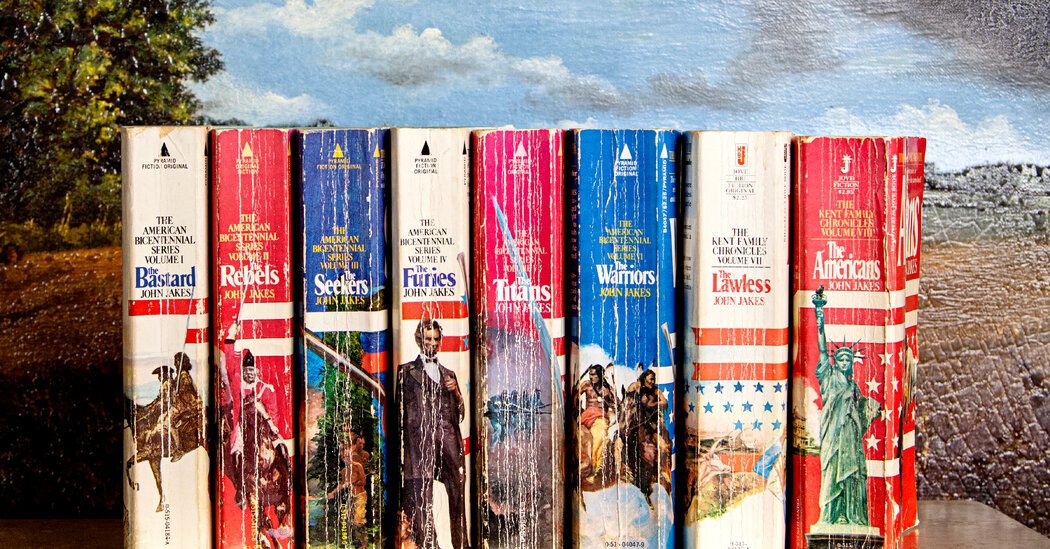

These were my father’s books; they were not meant for me. But their paperback covers, with images of strapping men waging war and gorgeous couples waging you-know-what, held great allure for a shy boy versed in neither of those life skills. So, one day — I must have been around 13 — I pulled the first novel in the series off the shelf.
It was “The Bastard,” by John Jakes.
Almost immediately, I was captivated. In part for the naughty bits, sure. But that first book and the ones that followed — “The Rebels,” “The Seekers,” “The Furies,” “The Titans,” “The Warriors,” “The Lawless” and, finally, “The Americans” — also offered me a romanticized and tantalizing history of the United States, one that appealed to my sense of adventure, of right and wrong, of longing for a country that was not yet mine.
I had no idea then, as I read the books in the mid-1980s, that Jakes’s eight-volume, multigenerational saga about the Kents, an American family whose lives span the Revolutionary era to the late-19th century, had been a sensation in the United States just a few years earlier. Published between 1974 and 1979 to mark the 200th anniversary of the Declaration of Independence, Jakes’s American Bicentennial Series was wildly popular, even spawning tacky television versions (imagine William Shatner and Kim Cattrall in Colonial garb). Together, the books would sell 55 million copies. My family emigrated from Peru to the United States in the mid-1970s, just in time for my father to join the Jakes craze.
It’s easy to see why Americans embraced this story. The Kents are dashing and brave and principled and passionate, pausing their honorable fighting and copious copulating to ponder big ideas about duty and nation, and to wrestle with the choices brought on by the wealth and influence the family amasses. Their motto — “take a stand and make a mark” — has a whiff of noblesse oblige to it, but why not? For a country emerging from the self-doubt of Vietnam and the shame of Watergate, some celebratory historical fiction must have been a comforting way to blow out 200 candles.
A year from now, the United States will reach another big anniversary of independence. Intense debates have already begun over how we should mark America’s 250th — what history will be told, which heroes will be honored, whether celebration or introspection should have pride of place, how to commemorate the founding at a moment when our foundations are under stress.
In search of answers, I decided to try Jakes and the Kents once more. I wanted to see if the books that inspired so many Americans 50 years ago could offer some help for another apprehensive age. And selfishly, I wanted to relive the Kent story, some 5,000 pages worth, to see whether my old fascination endured.

![Enjoy the [Road] Show Travel Mug with Handle, 14ozEnjoy the [Road] Show Travel Mug with Handle, 14oz](https://georgemagazine.com/wp-content/uploads/2024/08/479070202831754764_2048-300x300.jpeg)

